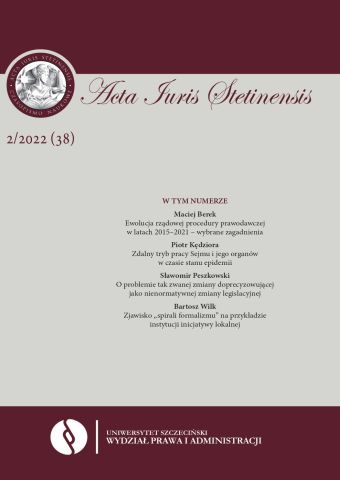Zestaw z powiększonym VAT-em – glosa do wyroku Naczelnego Sądu Administracyjnego z dnia 30 lipca 2021 r., I FSK 1749/18
Set meal with increased VAT – gloss to the judgment of the Supreme Administrative Court of 30 July 2021 I FSK 1749/18
Author(s): Michał KuśmirskiSubject(s): Law, Constitution, Jurisprudence, Civil Law, Commercial Law, Court case, Administrative Law
Published by: Wydawnictwo Naukowe Uniwersytetu Szczecińskiego
Keywords: neutrality; tax rate; goods and services tax; VAT; fast food
Summary/Abstract: The subject of the voted judgment was the problem of taxation of performance offered by fast food restaurants for factual situations occurring before the general interpretation of the Minister of Finance was issued in 2016. The position of the Supreme Administrative Court (hereinafter: NSA) has been assessed and verified as the first settlement covering this issue and which may be the beginning of the case law. The problem in the discussed issue was the application of the correct VAT rate and the conduct of tax authorities in this respect resulting in unequal treatment of taxpayers. The analysis of this subject made it possible to verify the position of the NSA expressed in the judgment under review and provided unambiguous arguments that it was fully justified. It states that the classification of a performance as a supply of goods or a supply of services is determined by whether the consumer purchases it as a takeaway or eats it on the premises, making use of the facilities provided. In addition, the competition-distorting behaviour of the tax authorities, which consisted in treating taxpayers unequally by applying different tax rates to the same activities, was contrary to the fundamental principle of the neutrality of VAT. Thus, the sale of takeaway food products in so-called fast food restaurants could be subject to a preferential 5% tax. In this study, the dogmatic-legal method and the historical method were used by examining both the existing and repealed provisions of tax law. Additionally, an analytical method has been used in the course of the analysis of literature and case law on the subject.
Journal: Acta Iuris Stetinensis
- Issue Year: 2022
- Issue No: 38 (2)
- Page Range: 225-239
- Page Count: 15
- Language: Polish

